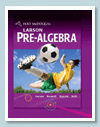- Q&A Categories
- BASIC MATH (93)
- PRE-ALGEBRA (441)
- ALGEBRA 1 (2,220)
- GEOMETRY (864)
- ALGEBRA 2 (2,751)
- TRIGONOMETRY (1,187)
- PRECALCULUS (1,903)
- CALCULUS (2,802)
- STATISTICS (129)
- PHYSICS (659)
- CHEMISTRY (137)
- MECHANICAL ENGINEERING (64)
- ELECTRICAL ENGINEERING (207)
- Winplot Tutorials (2)
Recent Visits








